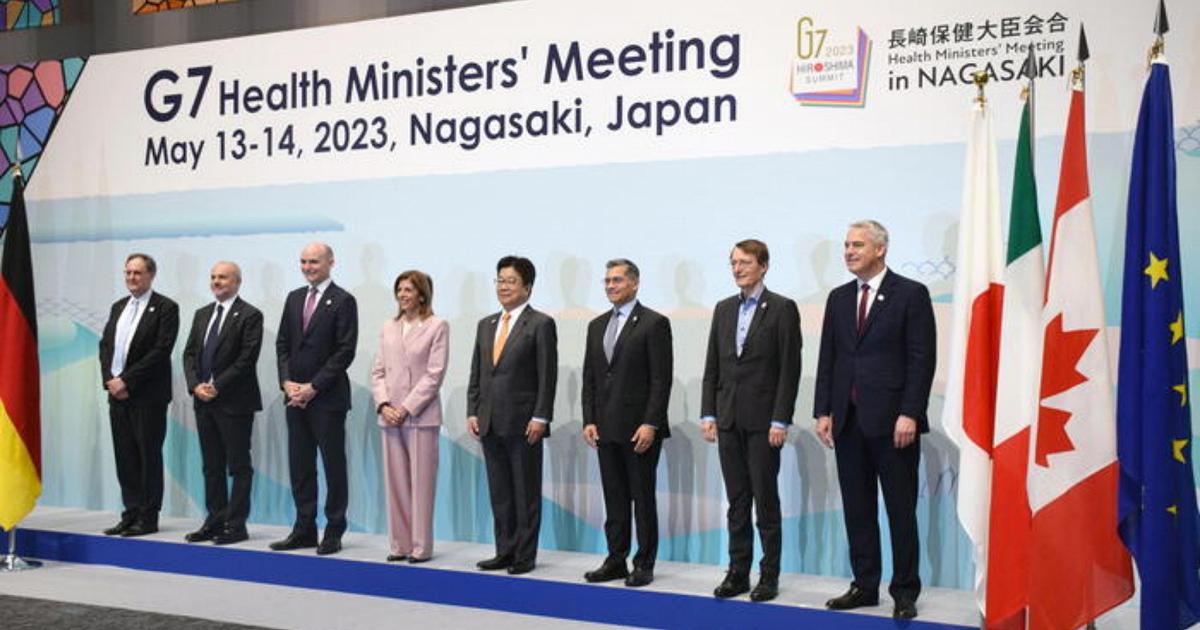Hiroshima will host the next G7, from 19 to 21 May. Waiting for the summit in Japan, some ministerial meetings are already meeting in Nagasaki and Nigata. Today the Minister of Health Orazio Schillaci participates in the summit, as did yesterday the Minister of University and Research Bernini, who recalled the importance of openness and sharing of scientific research data. EU Commission President Von der Leyen confirmed her presence yesterday. Meanwhile, on the sidelines of the G7 in Nigata, the governor of the Bank of Italy Ignazio Visco spoke: "If there is one thing I would recommend is to be attentive to how we judge" the prospects on future monetary policy moves, "there is a very high level of uncertainty" due to the "war not yet concluded", the "energy dimension that for now has returned to the level of costs" and the "global fragmentation, with the tension with China requiring a diplomatic effort." Economy Minister Giancarlo Giorgetti was more optimistic, commenting on the confirmation of Fitch's rating on Italy: "The serious, responsible and discreet work that the government is doing, and which therefore inspires confidence in the markets, is perceived. It means that the government can continue the policy it has done to date by creating fiscal spaces to help families as we did with the decree of May 1".
Uncertainty about the future rises
The ministers of economy and finance of the G7 countries in the final communiqué at the end of the meeting in Japan say: "The global economy has shown resilience against multiple shocks, including the pandemic, Russia's war against Ukraine and inflation. However, we must remain vigilant, and we must be agile and flexible in our macroeconomic policies in an environment of heightened uncertainty about the global economic outlook." The statement reiterated "its firm support to Ukraine for as long as necessary and we are united in our condemnation of Russia's illegal, unjustifiable and unprovoked war of aggression against Ukraine. We are firmly committed to continuing to address Ukraine's urgent short-term financing, as well as supporting neighbouring countries and other severely affected countries." The commitment to the reconstruction and repair of Ukraine's critical infrastructure was also highlighted. It said it would continue to work "closely with supervisors and regulators to monitor developments in the financial sector and we stand ready to take appropriate action to maintain the stability and resilience of the global financial system." "We are determined to urgently address climate change, through large-scale action in this critical decade, in order to keep the global temperature increase within 1.5 degrees."
Visco: "Banks feel the risks of the economy"
"The risks of the real economy are beginning to be felt and banks are more cautious at European level, not only in Italy", said Governor Visco, adding that the slowdown in credit to businesses and households is the answer to two issues: the increase in rates, which has acted on demand, and "the supply of credit linked to the financial tensions that have emerged in recent periods, that Europe absorbed without serious difficulties but the risk remained". Then he went on to say that "the tension with China has reasons but requires a considerable diplomatic effort, both of economic diplomacy and tout court, because we must keep dialogue open and deal together with the problems that affect us together. I believe that it is not convenient for anyone to strongly underline issues that can then be the subject of different evaluations depending on the data that come to manifest themselves".
Visco: "Interest rates are still rising, but the trend is slowing down"
"In the seven times we have raised rates we have gone from an increase of 75 points to one of 50 and then 25. This is the trend with respect to size but the direction continues to be the one against the risks of inflation propagation", added Visco at the end of the G7 Financial Meeting in Japan. He explained that "monetary policy needs time to propagate" and that "transmission is taking place as expected. Then we'll see." The governor recalled that each time we reason "on the basis of the data that are gradually becoming available: the factors of inflation, the state of demand and also the speed of the decline in inflation in the medium term. You have to understand how the economy is doing and how effective monetary policy is."
Schillaci in Nagasaki for the Health Summit
"The international funding for Covid-19 was extraordinary, it was ad hoc", but "it came late in the pandemic and did not generate the return on investment that it could have had, both in health and economic terms". This is what the Director-General of the World Health Organization (WHO) Tedros Adhanom Ghebreyesus discussed with the G7 of Health and Finance Ministers, by video link with Japan where the summits are underway. At the table of government managers of the health sector, in Nagasaki, the Italian minister Orazio Schillaci was also present.
A lot of funds have arrived against Covid, but late compared to the speed needed in responding to a pandemic emergency, was the message of the WHO DG. "To solve this problem in the future - explained via Twitter the head of the UN health agency - I asked the G7 Health and Finance Ministers to: ensure that the Pandemic Fund can adequately play its role; guarantee a wave of funding from day 'zero', when the next crisis hits; institutionalize cooperation between finance and health".
At the center of the work of the G7 of Health Ministers there were several strategic issues for the sector, informs the Italian ministry via twitter: "Universal health coverage; availability of medical countermeasures to deal with future emergencies; digital health; global health architecture on principles of equity".

